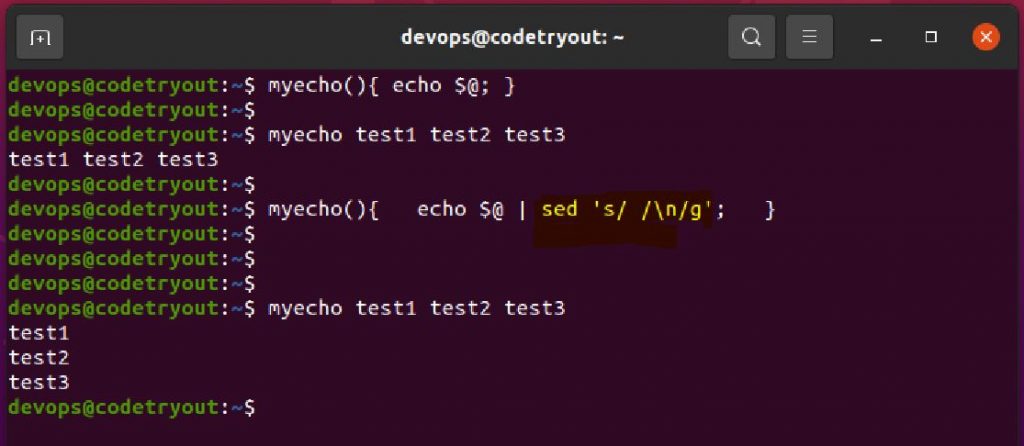It comes in handy if we can shorten some of the common sets of commands, or even multiline commands as a shortcut.
The solution is called aliases. Let’s explore the ways and see how easy it is to create bash aliases on the fly!
Here is a way to create a bash alias with arguments.
myecho(){ echo $@; }
alias mycommand='myecho'We have created:
- A function myecho, which will echo all arguments.
- An alias mycommand for calling that function.
Example #1. A bash alias with 1 argument
dev@codetryout:~/sample-git$ myecho(){ echo $@; }
dev@codetryout:~/sample-git$ alias mycommand='myecho'
dev@codetryout:~/sample-git$
dev@codetryout:~/sample-git$ mycommand TESTING
TESTING
dev@codetryout:~/sample-git$ 
Example #2. A bash alias with multiple arguments
dev@codetryout:~/sample-git$ mycommand arg1 arg2 arg3
arg1 arg2 arg3
dev@codetryout:~/sample-git$ Parameters (arguments) passed on to the function can be accessed via standard variables, such as $1, $2, $3, etc.
To make your alias permanently available, you have to add it to your ~/.bashrc or ~/.bash_profile file
Example #3. Expanding the function code
The alias function can be further expanded with more shell logic, for example, here we are trying with printing multiple arguments, each in a new line.
myecho(){ echo $@ | sed 's/ /\n/g'; }If you are setting aliases in your bash profiles, such as .bashrs or in .bash_profile, make sure to reload to take effect in the current shell.
You can reload the profile file by sourcing them
source ~/.bashrcI hope, this was helpful, please feel free to let us know if you have questions or comments.